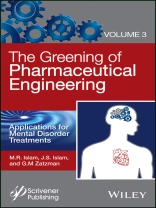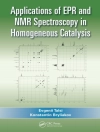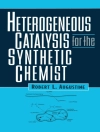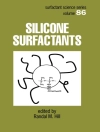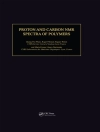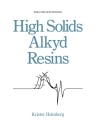This third volume in a four-volume set offers new theories and applications for the diagnosis and treatment of mental disorders. Having laid the groundwork in the first two volumes, the authors now embark on significant, real-life scenarios that apply their philosophy to mental disorder treatments. The goal of the project is to take the industry toward sustainability, not just in terms of the chemical engineering used to create medicines, but also environmentally, economically, and personally. Their unique approach uses a more holistic and philosophically cohesive method for treating mental disorders, making the industry ‘greener’ and the patient healthier.
The four volumes in ‘The Greening of Pharmaceutical Engineering’ are:
* Volume 1: Practice, Analysis, and Methodology
* Volume 2: Theories and Solutions
* Volume 3: Applications for Mental Disorder Treatments
* Volume 4: Applications for Physical Disorder Treatments
This ground-breaking set of books is a unique and state-of-the-art study that only appears here, within these pages. A fascinating study for the engineer, scientist, and pharmacist working in the pharmaceutical industry and interested in sustainability, it is also a valuable textbook for students and faculty studying these subjects.
Daftar Isi
Preface xi
1 Introduction 1
1.1 What If We Have Been in a Collective Delusional State? 1
1.2 Have We Been Bankrupted to Become Unhealthy? 3
1.3 Grounding Is Necessary but with What? 9
1.4 Do We Even Know the Difference Between a Genius and an Insane Person? 9
1.5 Is There a Continuity Among Depression, Dementia, and Schizophrenia? 10
1.6 How Can We Stop Being Self-Destructive? 11
1.7 Start Living Rather Than Making a Living: Make Humanity Great Again 11
2 A Model for Humanity and Human Behavior 13
2.1 Introduction 13
2.2 What Is a Human? 14
2.3 Aristotle’s Definition of Humans 38
2.4 Cognitive Process in Humans 49
2.5 The Nature Science Model of Humanity 86
3 Chemical Drugs for Mental Health Disorder 95
3.1 Introduction 95
3.2 Basic Anatomy 97
3.3 Antidepressants 107
3.4 Something ‘Left’ to Say About Serotonin 121
3.5 Connection of the Heart to Depression: The Intangible to the Tangible. 134
3.6 Additional Concerns 139
3.7 Bias in the Medical Research 145
3.8 Schizophrenia 161
3.9 Additional Comments and Conclusions 177
4 Psychological Grounding 179
4.1 Introduction 179
4.2 Culture of Fear 180
4.3 Have We Been Programed to Be Illogical? 184
4.4 Eurocentric Prejudice 206
4.5 Movement from Original Sin to Original Gene 212
4.6 Purpose of Life and Ideal Behavior 217
4.7 Looking at the Big Picture 227
4.8 The Truth Criterion 238
4.9 The Need for a Logical Standard 245
4.10 The Invocation of God 252
4.11 Is Invocation of God a Sound Premise? 254
4.12 Fundamental Traits of Phenomenal Entities 257
4.13 The Absolute Set of Fundamental Premises 261
4.14 Sufficiency of the Absolute Premises 264
4.15 Scientific Cognition Based on the Absolute Set of Fundamental Premises 265
5 Drivers of Mental Ailments and Natural Remedy 269
5.1 Introduction 269
5.2 Cause of Depression 270
5.3 Intangible Treatments for Depression 273
5.4 Tangible Treatments for Depression 298
6 Schizophrenia as a Tangible Expression of Mental Disorder 319
6.1 Introduction 319
6.2 Delinearized History of Schizophrenia 320
6.3 Intangible Treatments for Schizophrenia 329
6.4 Tangible Treatment of Schizophrenia 341
7 The Myopic Mindset of Self-Destruction 353
7.1 Introduction 353
7.2 The Oppression Syndrome 354
7.3 Gujarat Syndrome 370
8 Optimization of Lifestyle 383
8.1 Introduction 383
8.2 What Is Addiction? 385
8.3 Addictions that Start off as ‘Normal’ 386
8.4 Addiction and Compulsion 399
8.5 Towards Finding a Cure to Addiction 401
8.6 Dynamic Optimization 412
9 Conclusions 415
9.1 Summary 415
9.2 Conclusions of Chapter 2 416
9.3 Conclusions of Chapter 3 417
9.4 Conclusions of Chapter 4 418
9.5 Conclusions of Chapter 5 419
9.6 Conclusions of Chapter 6 419
9.7 Conclusions of Chapter 7 420
9.8 Conclusions of Chapter 8 421
References and Bibliography 423
Appendix A: 99 Godly Qualities of Humans 495
Appendix B: Diet for Sharpening the Brain 533
Appendix C: An Overall Guideline for Living 561
Index 583
Tentang Penulis
M. R. Islam, Ph D is a world-wide consultant on environment and energy-related issues. Dr. Islam is known as the most published engineer in the world. He is credited to have coined terms, such as ‘green petroleum’ and ‘sustainable petroleum development’ at a time when ‘sustainable petroleum’ was considered to be an oxymoron. Dr. Islam’s most notable contributions are in the areas of sustainability, environmental integrity, and knowledge modeling, on which topic he has written dozens of books and over 700 research papers.
Jaan S. Islam has been active in research on the topics of science and social science. He is a co-author of the theory of mass, energy, time, and human thought material that formed the core of a number of books, including the current series. His previous works include Reconstituting the Curriculum (with M.R. Islam & Gary Zatzman).
Gary M. Zatzman has decades of investigative journalism and research experience, dozens of articles in technical journals, and four previously published books: Sustainable Resource Development, Sustainable Energy Pricing, Economics of Intangibles (with M.R. Islam), and Reconstituting the Curriculum (with M.R. & J.S. Islam).
